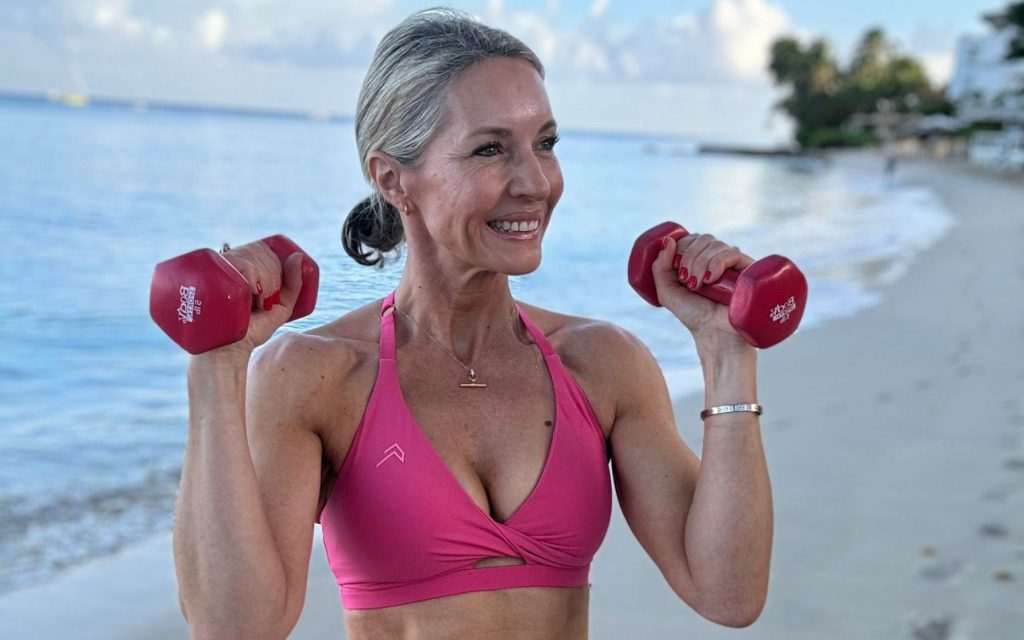
What You Should Be Eating and Drinking if You Strength Train
Strength training offers incredible benefits for women, including increased muscle mass, improved bone density and enhanced metabolic health. However, to maximise these benefits, it’s essential to fuel your body with the right nutrients and to stay consistent
Macronutrients: The Building Blocks
Protein
Protein is crucial for muscle repair and growth. Aim for a daily intake of 1.6 to 2.2 grams of protein per kilogram of body weight – take a look at this blog for more info on this. High-quality protein sources include:
– Lean meats: Chicken, turkey, and lean beef
– Fish: Salmon, tuna, and cod
– Dairy: Greek yoghurt, cottage cheese, and milk
– Plant-based: Tofu, tempeh, lentils, and chickpeas
– Protein supplements
Carbohydrates
Carbs are your body’s primary energy source, essential for fuelling intense workouts. Focus on complex carbohydrates that provide sustained energy:
– Whole grains: Brown rice, quinoa, oats and whole-wheat products
– Fruits: Berries, apples, bananas and oranges
– Vegetables: Sweet potatoes, broccoli, spinach, and bell peppers
– Legumes: Black beans, lentils and peas
Fats
Healthy fats are vital for hormone production and overall health. Incorporate a variety of these sources:
– Monounsaturated fats: Avocados, olive oil and nuts
– Polyunsaturated fats: Fatty fish (like salmon) flaxseeds, and walnuts
– Saturated fats: In moderation, from sources like coconut oil and dairy
Micronutrients: The Essential Vitamins and Minerals
Calcium and Vitamin D
These nutrients are crucial for bone health, especially important for women who strength train. Sources include:
– Calcium: Dairy products, leafy greens and fortified plant milks
– Vitamin D: Fatty fish, fortified foods and sunlight exposure. It is recommended to supplement this in winter months
Iron
Iron is vital for oxygen transport in the blood, supporting endurance during workouts. Women, in particular, need adequate iron intake due to menstrual losses. Sources include:
– Heme iron:*Red meat, poultry, and fish
– Non-heme iron: Lentils, beans, tofu and fortified cereals
Magnesium
Magnesium plays an important role in muscle function and recovery. Include these foods in your diet:
– Leafy greens: Spinach and kale
– Nuts and seeds: Almonds, pumpkin seeds, and sunflower seeds
– Whole grains: Brown rice, quinoa, and oats
Hydration: Stay Refreshed and Replenished
Staying hydrated is fundamental to performance and recovery. Here’s what you should aim for:
– Water: Drink at least 1.5 -2 litres per day, more if you sweat heavily during workouts.
– Electrolytes: Replenish electrolytes with drinks like coconut water, electrolyte tablets, or sports drinks, especially after intense or long-duration workouts.
Pre-Workout Nutrition: Fuel Correctly
Eating the right foods before your workout can make a significant difference in your performance. Aim to consume a balanced meal 2-3 hours before training, including:
– Carbs: For energy (e.g., a banana, bread, pasta)
– Protein: For muscle support (e.g., a protein smoothie, Greek yoghurt)
– Fats: In small amounts (e.g., a handful of nuts)
If you’re short on time, a small snack 30-60 minutes before your workout can also help:
– Fruit: An apple, banana or an orange
– Protein bar: Low in sugar and high in protein
Post-Workout Nutrition: Optimise Recovery
Post-workout nutrition is critical for recovery and muscle growth. Within 30-60 minutes after your session, aim to consume:
– Protein: To repair muscles (e.g., a protein shake, eggs, chicken breast, Greek yoghurt with nuts, seeds)
– Carbs: To replenish glycogen stores (e.g., sweet potato, rice)
– Hydration: Rehydrate with water and consider a sports drink if you’ve sweated a lot (watch the hidden sugars in these)
Supplements: When Food Isn’t Enough
While it’s best to get your nutrients from whole foods, supplements can help fill any gaps:
– Protein powder: For convenient post-workout protein if you are on the go (watch the sugar content in some of these though)
– Multivitamin: To cover general nutritional needs
– Fish oil: For omega-3 fatty acids
– Turmeric: excellent for inflammation – I highly recommend The Turmeric Co for this
– Magnesium – excellent for joint health
Conclusion
Proper nutrition is a key component of any effective strength training program, especially for women. By focusing on a balanced intake of macronutrients and staying hydrated, you can enhance your performance, recovery, and overall health. Tailor these guidelines to your specific needs, and you’ll be well on your way to achieving your strength training goals.
As always any questions please get in touch.
Caroline x



